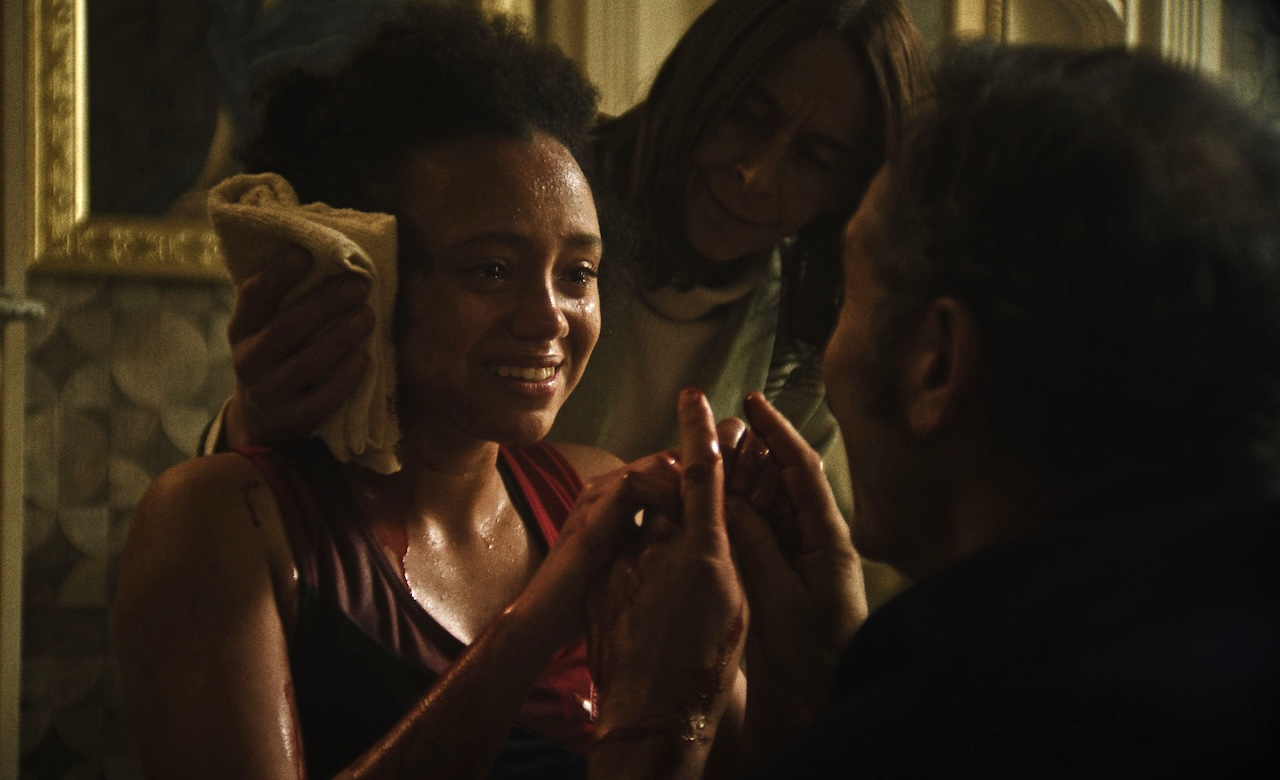Honey Bunch

A certain melancholia lingers over Honey Bunch, the latest from writer-director duo Madeleine Sims-Fewer and Dusty Mancinelli. From its opening – a mix of dreamlike serenity and creeping unease – the film promises a slow descent into psychological horror. Yet what follows, while ambitious and visually rich, is an overlong exercise in tension, invoking the Gothic sensibilities of Crimson Peak while struggling with similar shortcomings.
Diana (Grace Glowicki) and Homer (Ben Petrie) check into an experimental trauma centre after she suffers pain and memory loss from a car accident. The secluded facility promises extraordinary results, but its enigmatic founder, Dr Tréphine (Patricia Tulasne), harbours a philosophy that grows increasingly disturbing. As Diana’s memories resurface, a sinister secret emerges, exposing the dark undercurrents of Homer’s devotion.
Sims-Fewer and Mancinelli are meticulous in their world-building. Honey Bunch thrives in its aesthetic – an eerie, 70s-inspired tableau of pastels and ornate interiors. It exudes deceptive warmth, like a welcoming home where something always feels off. But for all its visual bravado, the storytelling buckles under its weight. At two hours, the film struggles to maintain momentum, stretching out eerie yet predictable revelations.
Glowicki delivers a strikingly fragile performance, her portrayal of Diana wavering between bewilderment and growing distrust, and showing more different extremes in the story’s climax. But where Honey Bunch truly excels is in its soundscape, designed with exquisite precision by Matthew Chan. Whispered words slip through walls, the rural mansion hums with sinister energy, and sudden, jarring sounds serve as far more effective jump scares than any of the visual trickery plaguing Diana. This auditory unease sustains the tension even when the story stagnates.
For all its strengths, Honey Bunch unfolds with an unassailable sense of detachment. The couple’s marriage feels more like a thematic construct than a relationship. There are pieces of brilliance here – a slow-burning horror that unsettles in cerebral rather than visceral ways. But the drawn-out journey doesn’t justify its effective, intriguing but ultimately unimpressive ending. Rich in atmosphere and auditory terror, it ultimately unravels under the weight of its own intensity, much like the marriage at its centre.
Christina Yang
Honey Bunch does not have a release date yet.
Read more reviews from our Berlin Film Festival coverage here.
For further information about the event visit the Berlin Film Festival website here.

























Facebook
Twitter
Instagram
YouTube
RSS